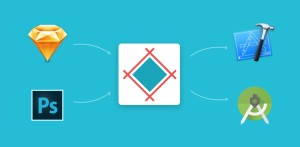One of the freelancer’s major challenges — if not the major challenge — is to be able to direct ourselves in our work. Focus is the key to self-direction. In most workplaces, employees have external pressures, like bosses, colleagues, project timelines that others have set, that automatically provide focus. But when you’re freelancing, there may be weeks or months in which the only pressure you feel is the pressure you place on yourself.
Without external impetus, you may well find yourself waking up each morning lacking motivation and direction. No one needs an output from you today — you could do anything. No one will notice if you’re not working, or if you’re not at your desk. Yes there are bills to pay, but will one day make any real difference?
These are the day-to-day challenges of maintaining focus while we’re freelancing. Alyssa provided tips to combat them in her post, Five Powerful Ways to Improve Your Focus. But how can the freelancer clarify their freelance career focus at a broader level? I use these five basic steps to manage my freelance focus.
Step 1. Take full responsibility.
The first thing a solo worker needs is a sense of their responsibility. It’s true that often, you may feel as if your only responsibility is to yourself, and sometimes that can seem like an easy responsibility to shirk.
When I feel this way, I usually run through the reasons why I’m freelancing, and remind myself about the way I want to live. Though it sounds innocuous, this helps me get focused even in the absence of external pressures. After all, the only person who can achieve the lifestyle I want is me. The responsibility is all mine, so I’d better get to my computer and work out what I need to do today.
 Step 2. Set boundaries.
When you work for yourself, or from home, it’s easy for boundaries to slide. I’ve known quite a few freelancers who have started out well enough, but have soon found themselves working all hours, as the mood takes them; working in bed or on the couch; working in their PJs; stopping work to watch Oprah or the midday movie — the list goes on.
While freelancing is a great opportunity to find your ideal work style and pace, I’ve found that it’s important to monitor my activities and get an idea of what works for me — what helps me to feel motivated, responsible, and in control of my future.
If, for example, after you’ve worked in your PJs for a few weeks, you find that you feel less switched on, or less eager to get out, explore your field, meet people and seek new projects, then it might be a good idea to set a few boundaries around work location and attire, and see if this makes a difference to your work patterns.
Trying new ways to work and live is a great idea, but it’s most valuable if you monitor and adjust your approach intelligently as time passes, and gauge the results of those trials on your ability to achieve.
Step 3. Set goals.
Setting goals — specific, measurable, achievable, realistic and timely goals — is an excellent way to keep yourself focused. They don’t even need to be big goals: I might decide that, on an operational level, I’m going to spend the first half hour of my day reviewing email and setting my task list. From there, I’ll go about achieving the items on that list — more mini-goals. Like savings in the bank, the achievement of small goals which, in the hurly-burly of our lives, can seem unimportant, adds up over time.
No matter what your large goals entail — lifestyle, career, and so on — they’ll only be achieved on a day-by-day basis. So setting and achieving those little goals is important in the long term. Best of all, though, is that achieving your daily goals helps you stay in control and on top of your freelance career. Goals provide the sense of pressure that can really benefit those of us without colleagues or external deadlines.
Step 4. Stay in touch.
Self-directed work can be lonely. If you’re not working with the usual constraints, benefits, and pressures that teamwork entails, you can find yourself feeling isolated, drifting, and as if you’re not contributing. Over time, these feelings can culminate, as you begin to question your capabilities, direction, and purpose.
Staying in touch with others is a solid way to combat this grim possibility. Yes, your friends and family are important, but maintaining close contact with others in your profession or field may be more valuable in helping you feel relevant, providing insight into solutions to problems you face, alerting you to new developments in your area of expertise, and so on.
Whenever I spend time discussing my work with professional peers, it reinforces my sense of place — how I fit into the professional sphere. Even though I may not be working directly with these associates right now, the experience of having intelligent, professional exchanges with them expands my mind, and reinforces my sense of my own capabilities and interests.
Step 5. Celebrate your achievements.
The corollary of having to motivate yourself to work is that there’s no one to celebrate with when you achieve your goals. That doesn’t negate the value of your achievements, or mean you shouldn’t celebrate them, though — in fact, it makes recognition of your achievements even more important!
When you achieve a goal, big or small, be sure to mark the occasion. So you spent the first half hour of your day going through your email and setting your schedule as planned? Great! Take a five-minute break to make a coffee before you knuckle down to complete those tasks. You won a contract you wanted? Excellent — tell your contacts through social network tools, or call a close, supportive friend or family member and let them know. You’re launching a new product or service? Invite those who are important to you to the launch, and solicit their feedback on your work.
Whether it’s a mid-morning coffee or a full-blown party, celebrating your achievements is an important — and easy — way to help keep yourself on track, and focused on whatever comes next.
These are the tactics I use to stay clear about why I freelance, and where my freelance career is headed. What tips can you share from your experience?
Step 2. Set boundaries.
When you work for yourself, or from home, it’s easy for boundaries to slide. I’ve known quite a few freelancers who have started out well enough, but have soon found themselves working all hours, as the mood takes them; working in bed or on the couch; working in their PJs; stopping work to watch Oprah or the midday movie — the list goes on.
While freelancing is a great opportunity to find your ideal work style and pace, I’ve found that it’s important to monitor my activities and get an idea of what works for me — what helps me to feel motivated, responsible, and in control of my future.
If, for example, after you’ve worked in your PJs for a few weeks, you find that you feel less switched on, or less eager to get out, explore your field, meet people and seek new projects, then it might be a good idea to set a few boundaries around work location and attire, and see if this makes a difference to your work patterns.
Trying new ways to work and live is a great idea, but it’s most valuable if you monitor and adjust your approach intelligently as time passes, and gauge the results of those trials on your ability to achieve.
Step 3. Set goals.
Setting goals — specific, measurable, achievable, realistic and timely goals — is an excellent way to keep yourself focused. They don’t even need to be big goals: I might decide that, on an operational level, I’m going to spend the first half hour of my day reviewing email and setting my task list. From there, I’ll go about achieving the items on that list — more mini-goals. Like savings in the bank, the achievement of small goals which, in the hurly-burly of our lives, can seem unimportant, adds up over time.
No matter what your large goals entail — lifestyle, career, and so on — they’ll only be achieved on a day-by-day basis. So setting and achieving those little goals is important in the long term. Best of all, though, is that achieving your daily goals helps you stay in control and on top of your freelance career. Goals provide the sense of pressure that can really benefit those of us without colleagues or external deadlines.
Step 4. Stay in touch.
Self-directed work can be lonely. If you’re not working with the usual constraints, benefits, and pressures that teamwork entails, you can find yourself feeling isolated, drifting, and as if you’re not contributing. Over time, these feelings can culminate, as you begin to question your capabilities, direction, and purpose.
Staying in touch with others is a solid way to combat this grim possibility. Yes, your friends and family are important, but maintaining close contact with others in your profession or field may be more valuable in helping you feel relevant, providing insight into solutions to problems you face, alerting you to new developments in your area of expertise, and so on.
Whenever I spend time discussing my work with professional peers, it reinforces my sense of place — how I fit into the professional sphere. Even though I may not be working directly with these associates right now, the experience of having intelligent, professional exchanges with them expands my mind, and reinforces my sense of my own capabilities and interests.
Step 5. Celebrate your achievements.
The corollary of having to motivate yourself to work is that there’s no one to celebrate with when you achieve your goals. That doesn’t negate the value of your achievements, or mean you shouldn’t celebrate them, though — in fact, it makes recognition of your achievements even more important!
When you achieve a goal, big or small, be sure to mark the occasion. So you spent the first half hour of your day going through your email and setting your schedule as planned? Great! Take a five-minute break to make a coffee before you knuckle down to complete those tasks. You won a contract you wanted? Excellent — tell your contacts through social network tools, or call a close, supportive friend or family member and let them know. You’re launching a new product or service? Invite those who are important to you to the launch, and solicit their feedback on your work.
Whether it’s a mid-morning coffee or a full-blown party, celebrating your achievements is an important — and easy — way to help keep yourself on track, and focused on whatever comes next.
These are the tactics I use to stay clear about why I freelance, and where my freelance career is headed. What tips can you share from your experience?
Frequently Asked Questions (FAQs) About Career Focus
How can I identify my career goals?
Identifying your career goals is a crucial step towards achieving a clearer career focus. Start by assessing your skills, interests, and values. Consider what you enjoy doing, what you’re good at, and what’s important to you. Then, think about how these aspects can translate into a career. Research different professions and industries to understand what they entail and the skills they require. This will help you align your personal attributes with potential career paths. Setting SMART (Specific, Measurable, Achievable, Relevant, Time-bound) goals can also help you create a clear roadmap for your career.
How can I stay focused on my career goals?
Staying focused on your career goals requires discipline, motivation, and a clear plan. Break down your long-term goals into smaller, manageable tasks and set deadlines for each. This will make your goals seem less overwhelming and more achievable. Regularly review your progress and adjust your plan as necessary. Surround yourself with supportive people who understand your goals and can provide encouragement and advice. Remember to celebrate small victories along the way to keep your motivation high.
How can I balance my current job and career development?
Balancing your current job and career development can be challenging but it’s essential for long-term career success. Start by setting clear boundaries between your work and personal time. Use your personal time to focus on career development activities such as learning new skills, networking, or researching potential career paths. Seek opportunities for growth within your current job, such as taking on new responsibilities or projects. Communicate your career aspirations with your manager and ask for their support and guidance.
How can I handle setbacks in my career?
Setbacks are a normal part of any career journey. When faced with a setback, it’s important to stay positive and resilient. Take time to reflect on what went wrong and what you can learn from the experience. Use this knowledge to adjust your career plan and strategies. Seek support from mentors, colleagues, or career coaches. Remember, setbacks are temporary and can provide valuable lessons for future success.
How can I improve my career focus?
Improving your career focus involves setting clear career goals, developing a plan to achieve them, and staying committed to your plan. Regularly review your career goals and adjust them as necessary. Stay informed about industry trends and opportunities. Invest in continuous learning and skill development. Practice mindfulness and stress management techniques to maintain your mental focus and resilience.
How important is networking in career development?
Networking is a crucial aspect of career development. It can help you learn about different industries, discover job opportunities, and gain valuable advice from experienced professionals. Attend industry events, join professional associations, and leverage social media platforms like LinkedIn to build and maintain your professional network.
How can I manage career transitions?
Career transitions can be challenging but they also offer opportunities for growth. Start by identifying your transferable skills and how they can be applied to your new career. Seek advice from professionals in the field and take advantage of any training or education opportunities. Be patient with yourself during the transition period and remember that it’s okay to ask for help.
How can I stay motivated in my career?
Staying motivated in your career involves setting meaningful goals, celebrating your achievements, and maintaining a positive mindset. Find work that aligns with your interests and values. Seek feedback and use it to improve your skills and performance. Remember to take care of your physical and mental health to maintain your energy and focus.
How can I develop leadership skills for career advancement?
Developing leadership skills involves continuous learning and practice. Seek opportunities to lead projects or teams at work. Attend leadership training programs or workshops. Learn from successful leaders in your field. Practice effective communication, problem-solving, and decision-making skills. Remember, good leadership also involves empathy, humility, and the ability to inspire and motivate others.
How can I handle work-life balance for a successful career?
Achieving work-life balance is crucial for career success and personal well-being. Set clear boundaries between your work and personal time. Prioritize tasks and learn to delegate. Take regular breaks and make time for activities you enjoy. Seek support from your employer, colleagues, family, and friends. Remember, maintaining a healthy work-life balance is a continuous process and requires regular reassessment and adjustment.
Georgina has more than fifteen years' experience writing and editing for web, print and voice. With a background in marketing and a passion for words, the time Georgina spent with companies like Sausage Software and sitepoint.com cemented her lasting interest in the media, persuasion, and communications culture.





